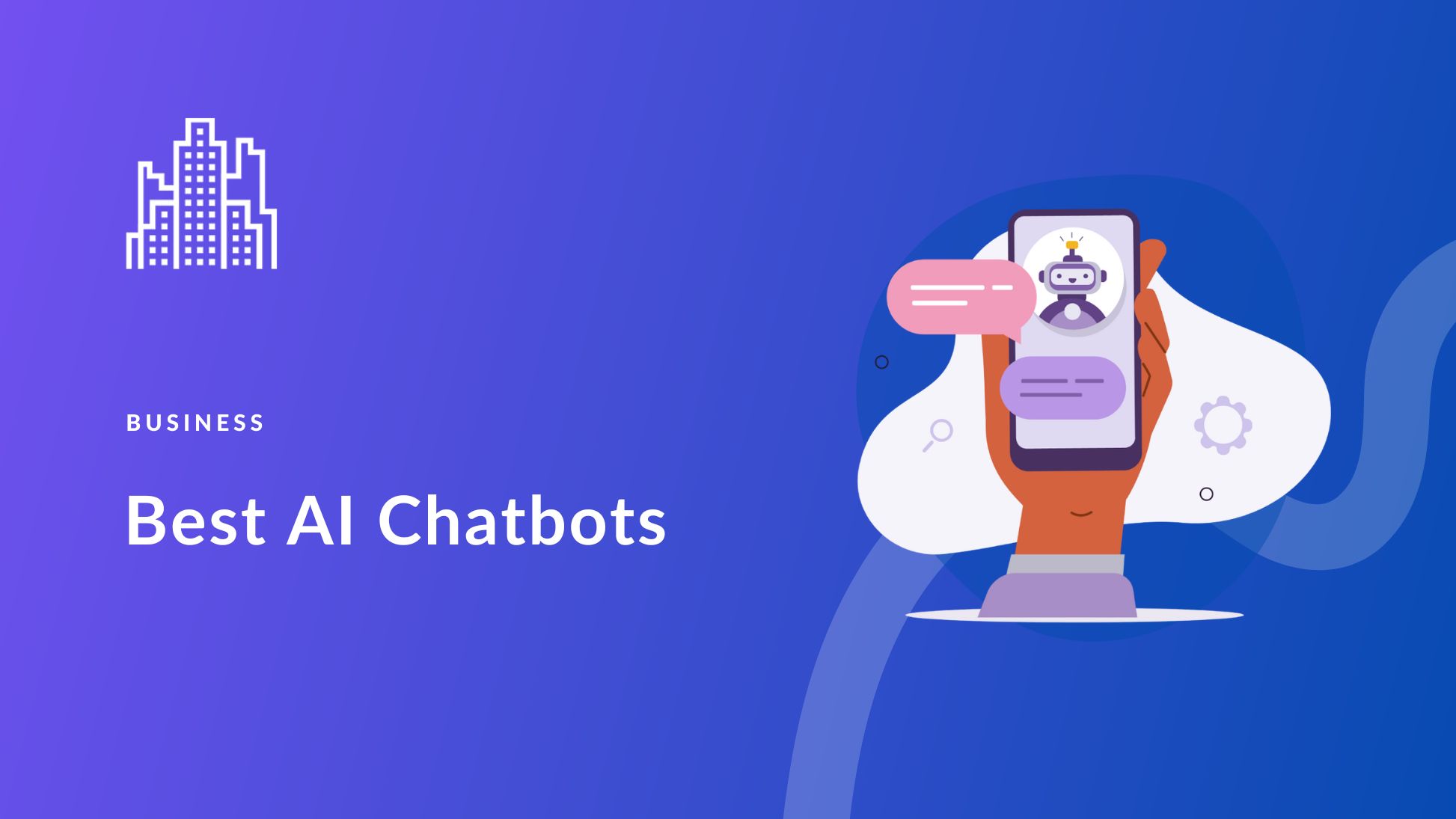Introduction: The Emergence of AI and Chatbots
Just a few years ago, chatbots and AI were topics of speculative fiction. Now, they are fundamental elements of many online business models. The intersection of artificial intelligence (AI) and chatbot technology has opened up a new world of possibilities for entrepreneurs, paving the way to a profitable AI future.
Understanding AI and Chatbots: An Overview
Artificial intelligence and chatbots are not just buzzwords, but powerful tools reshaping how businesses operate online. AI refers to the simulation of human intelligence processes by machines, especially computer systems, that can gather data, understand it, reason, and ultimately respond to it. On the other hand, chatbots are essentially computer programs designed to simulate human conversations. Merging AI with chatbots, businesses can not only automate responses but also learn from customer interactions, making them more efficient and providing a more personalized user experience.
The Impact of AI and Chatbots on Modern Business Landscape
AI and chatbots are revolutionizing online businesses, breaking traditional paradigms and reshaping customer interaction. They’re becoming particularly vital for customer service, supporting 24/7 availability, instant responses, and providing quick solutions. With their ability to analyze and learn from customer data, AI-driven chatbots can also offer personalized solutions, improving customer satisfaction and fostering customer loyalty. This not only results in improved performance and operational efficiency but even more importantly, it affects the bottom line positively.
Yes, we’re talking about transforming chatbots to cash flow. The convergence of AI and chatbots is setting the stage for online businesses to increase their revenue generation capacity. Looking ahead, businesses that can effectively leverage this dynamic duo are the ones that’ll prosper in a competitive, digital-first world.
Understanding Online Business Models
As a digital entrepreneur, I’ve bore witness to the radical shift in the online landscape. A massive part of this evolution can be attributed to the progress we’ve made in artificial intelligence (AI) technology and its application in driving efficiency and profitability. But before we dive deeper, let’s get our basics right – the online business models.
Overview of Various Types of Online Business Models
Now the internet is a vast ocean that’s overflowing with business opportunities. Here, you’ll find countless business models such as e-commerce, which involve buying and selling goods over the internet; affiliate marketing, where you earn from product recommendations; content creation and marketing, which entail monetizing digital content; and the software as a service model, where software is licensed on a subscription basis.
Each model offers its unique profit margins, operational norms, and customer behavior traits. However, the common thread is they’re all operating in a digital space that’s fast evolving thanks to advancements in technology, especially AI.
How are Online Business Models Evolving with Technology?
Well, it’s where AI and chatbots come into play. These technologies have ushered in a new era for online businesses by enabling 24/7 customer service, among many other benefits. A chatbot, for instance, can interact with hundreds of shoppers simultaneously, answering their queries and guiding them through the purchase process. This, in turn, has enhanced customer satisfaction and increased sales.
Moreover, AI and chatbots have not only altered how businesses interact with customers but also enabled Machine Learning, where your AI systems can learn from interactions and improve over time. Ultimately, this convergence of smart technology and traditional online business models is our stepping stone towards a more profitable AI future.
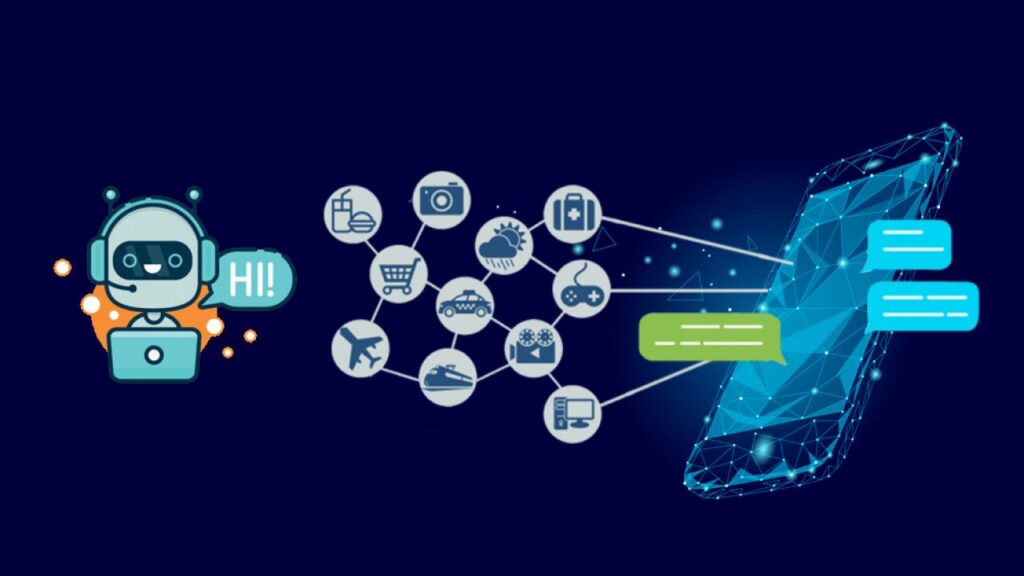
This image is property of www.einfochips.com.
The Role of Chatbots in Online Business Models
In the dynamic landscape of online business, innovation is the key to success. One of the latest trends that has swiftly evolved into a crucial tool for online businesses is the integration of chatbots. Forget the old-fashioned idea of robotic scripts and hello to interactive, intuitive, and sophisticated AI-powered chatbots.
Integration of Chatbots into Online Business Models
Chatbots, in essence, are computer programs designed to engage users in conversation. Today, they are an indispensable tool in the digital business landscape. They offer a range of smart features like vivid human-like conversations, customer service, and even finalizing sales transactions. Companies can embed these chatbots into their websites, applications, or product interfaces to provide a seamless, personalized user experience which wasn’t possible a decade ago. This ability to automate communication and streamline various business operations has dramatically restructured online business models.
Benefits of Using Chatbots in Online Business
The benefits of implementing chatbots in an online business model are numerous. Firstly, chatbots provide efficient 24/7 customer service, resolving issues without delay. This not only enhances customer satisfaction but also reduces the cost of hiring customer service personnel.
Secondly, chatbots can collect and analyze user data to provide businesses with valuable insights about their customers. This facilitates more targeted marketing strategies, leading to higher conversion rates and ultimately increasing profits.
Lastly, by automating routine tasks, chatbots free up human resources allowing businesses to focus more on core functions and strategic decisions.
Chatbots surely have the potential to streamline online business models towards a profitable AI future. By capitalizing on this versatile tool, businesses can significantly enhance customer engagement, optimize their operations, and drive their growth. In the realm of e-commerce, the chatbot revolution is truly transforming the face of customer engagement and service.
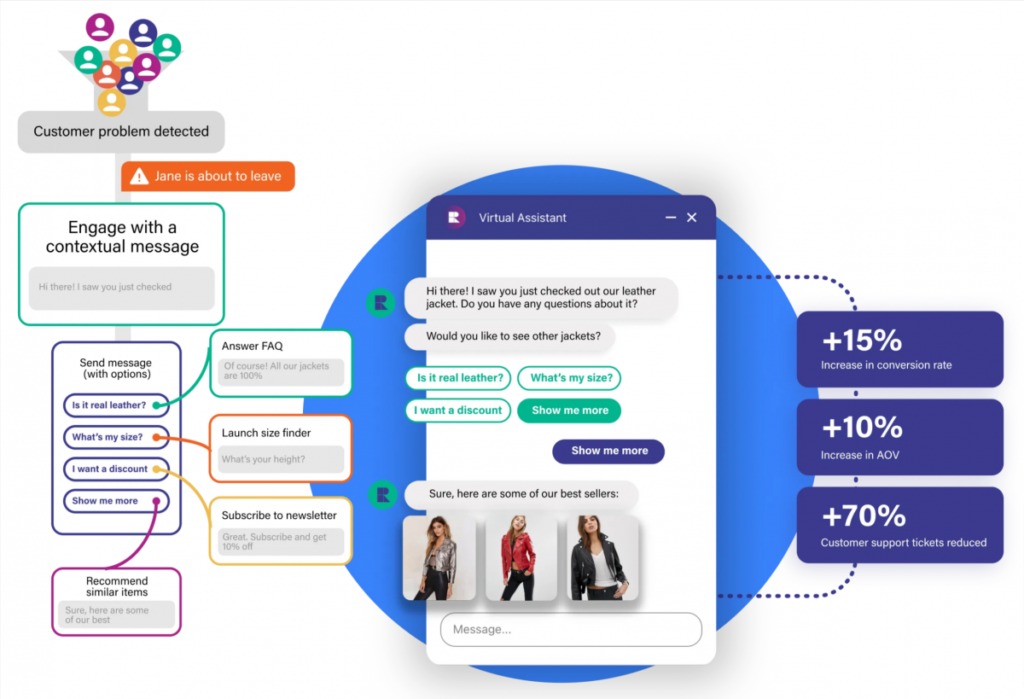
This image is property of ecommercefastlane.com.
The Potential of Chatbots in Different Industry Sectors
In the digital age, the incorporation of artificial intelligence (AI) into various business operations has become more of a necessity than an option. The emergence of chatbots, AI-driven technology designed to interact with humans in their natural languages, is revolutionizing different sectors, thus substantially increasing business profitability.
Chatbots in Retail: Enhancing Customer Engagement
At the heart of retail and e-commerce businesses, customer engagement is king. Incorporating intelligent chatbots into online platforms allows businesses to provide personalized shopping experiences for customers. They can assist in product selection, address inquiries and complaints, and even process transactions. This not only increases customer loyalty but also drives more sales, making chatbots a vital aspect of retail success in the digital era.
Boosting Efficiency in Healthcare through Chatbots
The advent of chatbots in healthcare is creating major strides in enhancing efficiency. They are being utilized for appointment scheduling, patient data collection, and preliminary patient diagnosis, thus freeing up time for healthcare professionals to focus more on patient care. Chatbots are also aiding medical practitioners in providing round-the-clock patient service, which greatly enhances patient satisfaction and overall care delivery in the sector.
Chatbots in Edu-Tech: Streamlining Learning Experience
Chatbots are carving a niche in the Edu-Tech industry by aiding governments, institutions, and startups in delivering streamlined educational experiences to learners. They are being configured to answer student queries, provide educational resources, and even grade tests promptly. This results in improved student engagement, efficient learning, and ultimately high academic performance.
As we delve into the digital future, chatbots are proving to be an indispensable game-changer. Their incorporation into online business models is proving to not only boost operational efficiency and customer engagement but also grow revenues substantially, heralding a truly profitable AI future.
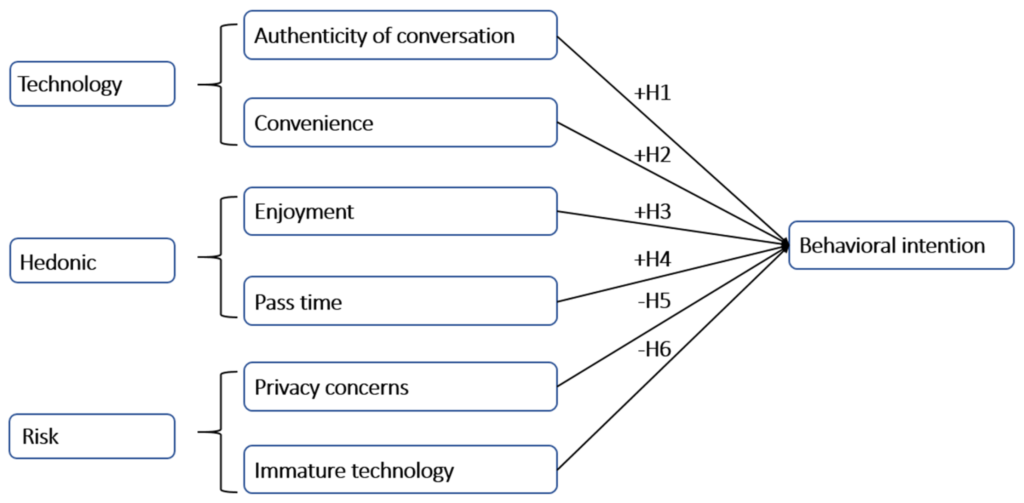
This image is property of www.mdpi.com.
Profitability Aspects of Utilising Chatbots
I’d like to talk about the exciting possibilities that arise from weaving Artificial Intelligence (AI), particularly chatbots, into your online business models. Harnessing AI technology not only paves your path to the future but also opens up many avenues for profitability.
Leading business experts and scholars agree that chatbots can contribute significantly to the revenue streams. However, a critical factor to consider is the strategic application and integration of these chatbots into your business models.
Assessing the Financial Gains from Chatbot Integration
Integrating chatbots in your business can bring about notable financial gains. These dexterous digital assistants can significantly reduce operational costs. They stand in for customer service representatives, managing a vast majority of inquiries and problems, reducing hefty human resource expenses.
Additionally, chatbots can run 24/7, ensuring that the business is always open and customer queries are promptly addressed. This increased efficiency and customer satisfaction can convert into higher sales and profitability. Their interactive nature can also help collect valuable user data to use for targeted marketing & personalization strategies to increase conversion rates.
Exploring Revenue Models for Chatbot-based Online Businesses
To monetize chatbot technology, online businesses could consider several innovative revenue models. Chatbots can be monetized directly by charging users for premium services, or integrated into a freemium model, where basic services are free, and users have to pay for advanced features.
Another viable revenue model could be advertising. Chatbots can provide personalized product recommendations, and businesses can charge vendors for promoting their products. Affiliate marketing models can also be pursued, where chatbots promote products and earn commissions on the sales.
To summarise, the possibilities for driving revenue via chatbots are multitudinous and can contribute pivotally to a profitable AI future. I encourage businesses to explore this technology and leverage it to its fullest potential.

This image is property of onix-systems.com.
The Drawbacks and Challenges of Using AI and Chatbots
There’s no denying the incredible potential of AI and chatbots in modern online business models. However, as with all technology, it isn’t without its drawbacks and challenges. It’s important for businesses to be fully aware of these aspects in order to navigate towards a profitable future effectively.
Addressing the Downsides of Chatbots in Business
One of the major hurdles in leveraging the power of chatbots is their sometimes apparent lack of human touch. Customers often yearn for personalized interactions that chatbots, despite their technical sophistication, may sometimes fail to deliver. Moreover, complexities can arise when chatbots need to understand and respond to nuanced messages, leading to potential customer frustration.
Another significant downside is the potential privacy issues. Customers might be skeptical about sharing personal information with AI-powered systems, leading to potential business obstacles. These concerns aren’t baseless and need to be addressed conscientiously.
Overcoming Challenges in Implementing an AI-integrated Business Model
Implementing an AI-integrated business model is not a walk in the park. It requires a significant investment in infrastructure and a keen understanding of the technology at play.
But these challenges aren’t insurmountable. With proper planning and strategic execution, the inherent challenges of implementing AI can be overcome. Perhaps the most crucial challenge to overcome is the learning curve associated with AI-based technology. Organizations should invest in training programs that can help employees become familiar with these technologies to optimize their use.
Also, essential to overcoming these challenges is establishing trust among customers by prioritizing data security and transparency in all operations. Only then can companies truly harness the full potential of AI and chatbots in their online business models.
while there are challenges in implementing AI and chatbots, businesses that learn to navigate these effectively are the ones that will achieve a profitable AI-Infused future.
Future Trends in AI and Chatbots in Online Business Models
Change is inevitable, especially in the realm of technology. As an avid follower of tech trends, I am always fascinated by the evolution of Artificial Intelligence (AI) and its impact on online business models. Today’s trend is focused on chatbots and how this technology can steer online businesses towards a more profitable AI future.
Predicting the Evolution of AI and Chatbots in Business
The rise of AI and chatbots is far from unexpected. They have become an integral part of many organizations, revolutionizing the way businesses interact with customers, boosting customer service, and driving sales. Customer inquiries are answered quickly and efficiently which, in turn, increases overall business productivity.
The future for AI and chatbots looks even brighter. More businesses are expected to integrate these technologies into their operations. Chatbot technology will become more sophisticated, enabled with natural language processing to understand and interpret human emotions better. Thus, improving customer engagement and driving business success.
Anticipating Changes in Online Business Models
The introduction of chatbots will undoubtedly disrupt traditional online business models. As businesses pivot their strategy to incorporate these intelligent systems, consumers can anticipate a more personalized online shopping experience. This embeds a level of productivity and efficiency that was previously hard to achieve.
AI’s capacity to analyze and predict consumer behavior will allow businesses to tailor product offerings, refine marketing strategies, and ultimately improve the overall customer experience. This represents a significant shift in how businesses operate online, redefining customer relationship management and paving the way towards a future that is underpinned by artificial intelligence and chatbots.
With the rapid progress of AI, we are only scratching the surface of what could be a paradigm shift in online business models. It’s a fascinating space to watch, and I am eager to see where the journey takes us as we navigate towards a more profitable AI future.
Case Studies: Successful Integration of Chatbots in Business Models
As we delve deeper into the world of AI and chatbots, it’s essential we take a look at businesses that have already enjoyed major successes through their effective integration of chatbots. The insights gained from their experience will guide us through this endeavor towards the profitable future AI promises.
Successful Adoption of Chatbots: Business Case Insights
First, we have businesses in the customer service realm. Here, chatbots play a key role in providing customer support round the clock. One such example is a major e-commerce platform that uses chatbots to answer queries, track orders and provide recommendations. Through the use of chatbots, they have reduced their average customer resolution time significantly, leading to increased customer satisfaction and retention.
Then there are businesses in the travel industry that use AI chatbots to respond to booking inquiries, provide personalized suggestions, and streamline the reservation process. The result? Increased efficiency, happy customers, and increased profits.
Lessons Learned from Successfully Implementing Chatbots
Drawing from the experiences of aforementioned businesses, some common elements emerge that can inform our own navigation through the AI landscape.
Firstly, businesses must prioritize the design of a chatbot that aligns perfectly with their specific business needs and customer expectations. This means the chatbot should not only be technically sound, but also crafted with a deep understanding of the company’s target audience and their needs.
Secondly, businesses should not underestimate the potential of integrating the chatbot with their current systems. Compatibility, after all, is key in seamless service delivery and ultimately, customer satisfaction—an integral factor in business success.
Through learning from those who’ve succeeded, we’re more likely to gain our own success in the exciting, AI-driven future of online business.
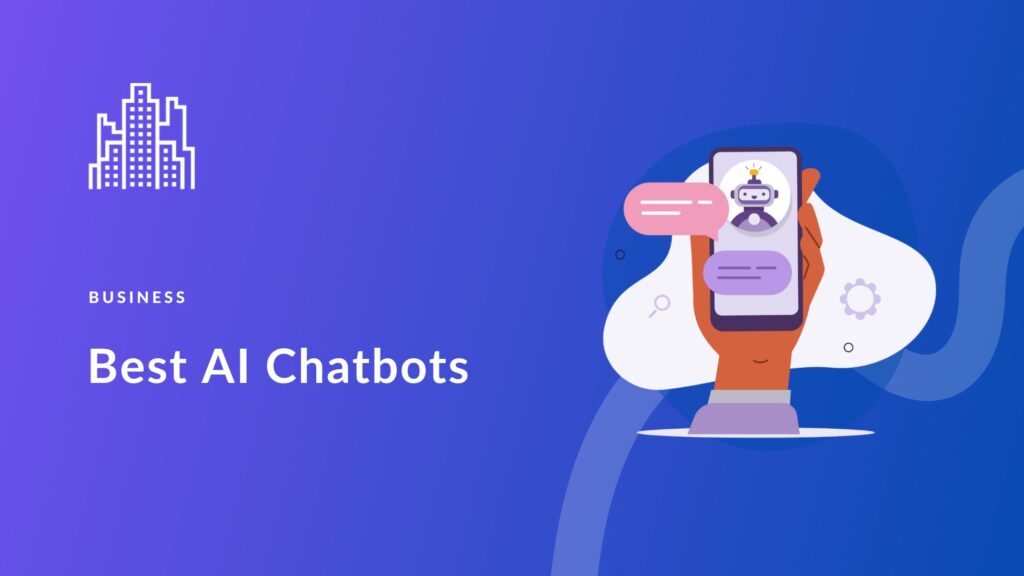
This image is property of www.elegantthemes.com.
Preparing for a Chatbot-Enhanced Business Future
In this modern digital era, online businesses are constantly searching for innovative strategies to enhance customer experiences, streamline operations, and increase profitability. As we look forward to a profitable AI future, one tool continually stands out; chatbots.
Steps to Successfully Implementing a Chatbot Strategy
Implementing a Chatbot strategy might seem like a daunting task, but believe me, it’s worthwhile. So, how can we do that? Well, start by identifying the key areas of your business where chatbots could provide a significant impact. Who knows? It may be customer service, sales, or lead generation. After that, it is about selecting the right chatbot platform that matches your business’s needs. Once the implementation process begins, keep analyzing the data for ongoing improvements.
Building a Sustainable Profitable Business Model with AI and Chatbots
Building a profitable business model with AI and chatbots goes beyond just implementing the technology. It’s about integrating these tools into your business’s core processes. Here, you can use AI and chatbots to automate repetitive tasks, leaving your valuable human resources to focus on more important aspects. Simultaneously, chatbots can operate around the clock, delivering immediate support to your customers and increasing overall satisfaction levels. Remember, a more satisfied customer translates directly into profitability.
So there you have it! As we stride towards a profitable AI future, the incorporation of chatbots into our online business models may be the game-changer we have been waiting for. It’s an exciting journey where opportunities await, and it’s time we gear ourselves up to embrace it.
Conclusion: The Transformation towards a Profitable AI Future
As we’ve progressed through this comprehensive exploration of utilizing Chatbots in online business models, it’s increasingly evident that we are witnessing an exciting paradigm shift. Chatbots and Artificial Intelligence are rewriting the rules on how businesses can truly engage with, understand, and serve their customers.
Wrapping Up the Opportunities and Challenges of Chatbots
Chatbots, equipped with AI, hold the potential to amplify online business profitability. By offering a personalized customer service experience, answering queries in real-time, reducing operational costs, and upselling products or services, they can maximize revenue and customer satisfaction. On the flip side, the challenges are inextricably woven into the opportunities. Ensuring chatbot-human interactions continue to feel personalized and not robotic, maintaining customer privacy, and staying ahead of AI technology advancements are critical hurdles faced.
Looking Forward: The Future of AI and Chatbots in Online Business Models
The future of AI and Chatbots in online business models looks promising and vibrant. As machine learning continues to evolve, the capabilities of AI-enhanced chatbots will undoubtedly expand further. Businesses will only delve deeper into AI integration, making chatbots more intuitive, customer-centric, and revenue-generating.
In conclusion, stepping into the profitable AI future requires businesses to embrace the opportunities, navigate the challenges, and stay on the cutting edge of AI advancements. While the transformation won’t be easy or instantaneous, the rewards – in terms of profitability, customer relations, and competitive advantage – can be phenomenal. In this AI-driven era, Chatbots are more than just a fad. They are a powerful tool that can fuel the growth and profitability of online businesses in unimaginable ways.
